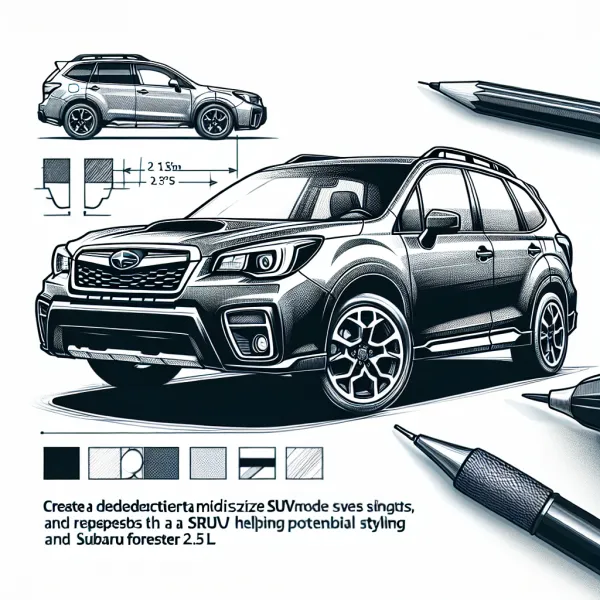Subaru Forester 2.5L (2020+): A Mechanic's Deep Dive Review
The Subaru Forester 2.5L has earned a reputation for practicality and all-weather capability. But is it all it's cracked up to be? As a mechanic, I'll give you the real scoop on what to expect from owning one of these, focusing on models from 2020 onwards.
Who is the Forester 2.5L for?
This car appeals to folks wanting a blend of SUV versatility and car-like handling. It's often chosen by families, outdoor enthusiasts, and those living in areas with challenging weather. It's not for speed demons or those looking for luxury, but it offers a practical and dependable ride.
Real-World Fuel Consumption
While the EPA estimates are in the high 20s for combined MPG, real-world figures I've seen are closer to 24-26 MPG combined. City driving drops that down, and highway driving can push it a bit higher, but don't expect miracles. Your driving style, terrain, and use of AWD will all play a role.
Common Problems (From a Mechanic's Perspective)
Foresters are generally reliable, but they're not perfect. Here's what I see in my shop:
- Oil Consumption: Some 2.5L engines, especially in earlier model years of this generation, have shown a tendency to burn oil. Keep a close eye on your oil level and don't skip changes.
- Head Gaskets: While not as prevalent as in older Subarus, head gasket issues can still pop up, albeit less frequently. Look out for white smoke from the exhaust or coolant loss.
- CVT Issues: The continuously variable transmission (CVT) can be a source of trouble in some cases, with whining noises or shuddering being common complaints. Ensure the transmission fluid is changed regularly as per Subaru's recommendations.
- Infotainment Glitches: The Starlink system can be buggy, with issues like freezing or slow response times. Software updates can sometimes help.
Maintenance Costs
Routine maintenance is reasonably priced. Oil changes run around $80-$120, brake jobs $300-$500, and tire replacements vary depending on the tires you choose. The big one is the timing chain, which should last the life of the engine, theoretically. However, if it does need replacing, expect a hefty bill (upwards of $1,500).
Hidden Costs
Beyond routine maintenance, factor in costs like: higher-quality synthetic oil (recommended for these engines), and potential repairs for the issues mentioned above. While not necessarily expensive individually, these costs can add up over time.
Overall Reliability
The Forester 2.5L is generally reliable, but not bulletproof. Regular maintenance is key. Don't neglect those oil changes! Address any signs of trouble promptly to avoid bigger headaches down the road. Its reliability is above average compared to other cars in its class.
Total Cost of Ownership
The Forester 2.5L isn't the cheapest car to own, but it's not outrageously expensive either. Factor in fuel, insurance, maintenance, and potential repairs, and you're looking at a moderate cost of ownership. It holds its value relatively well, which offsets some of the running costs.
Resale Value
Foresters tend to hold their value well, especially in regions with inclement weather. They're popular and in demand, which makes them relatively easy to sell when the time comes. Expect to get a decent return on your investment compared to other SUVs in its class.
Tips for Prospective Buyers
- Check the Carfax report for any accidents or title issues.
- Get a pre-purchase inspection from a trusted mechanic. This is crucial to catch any potential problems before you buy.
- Look for signs of oil consumption (check the dipstick) and any leaks.
- Test drive the car thoroughly, paying attention to the CVT for any unusual noises or behavior.
- Research common problems for the specific model year you're considering.
Alternatives
If the Forester isn't quite right, consider the Toyota RAV4, Honda CR-V, or Mazda CX-5 as potential alternatives. Each has its own strengths and weaknesses, so do your research and choose the one that best fits your needs.
Conclusion
The Subaru Forester 2.5L is a solid choice for a practical and capable SUV. It's not perfect, but with proper maintenance, it should provide years of reliable service. Be aware of potential issues and do your due diligence before buying. Overall, it's a good value proposition in its segment.
